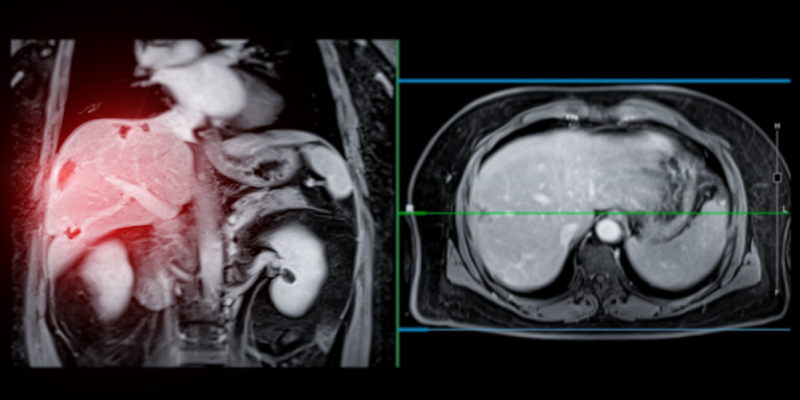
As many patients with hepatocellular carcinoma (HCC) experience recurrence in the liver after undergoing systemic therapy, the recent RTOG 1112 phase III trial sought to determine if the use of stereotactic body radiation therapy (SBRT) prior to systemic therapy can improve overall survival (OS) over the use of systemic therapy alone in patients with locally advanced HCC.
The multicenter trial included 177 eligible patients with HCC who were unsuitable or refractory to standard local-regional therapies and were candidates for first-line systemic therapy.
Patients were randomized 1:1 to receive either sorafenib or SBRT followed by sorafenib, stratified by performance status, liver function, degree of metastases, and macrovascular invasion. Data were collected between April 2013 and March 2021, and analyzed from July 2022 to August 2023.
The primary endpoint was overall survival (OS), while secondary endpoints included progression-free survival (PFS), adverse events, and quality of life (QOL).
Patients were administered SBRT in 5 fractions from 27.5 to 50 Gy. Macrovascular invasion was noted in 131 (74%) patients. As of July 2022, the median OS is 12.3 months (90% CI, 10.6-14.3) with sorafenib versus 15.8 months (90% CI, 11.4-19.2) following SBRT plus sorafenib (HR, 0.77; 90% CI, 0.59-1.01; 1-sided P=.06).
Adjusting for stratification factors, OS was improved with SBRT (HR, 0.72; 95% CI, 0.52-0.99; 2-sided P=.04), and the median PFS was improved from 5.5 months (95% CI, 3.4-6.3) with sorafenib to 9.2 months (95% CI, 7.5-11.9) with SBRT plus sorafenib (HR, 0.55; 95% CI, 0.40-0.75; 2-sided P<.001).
Treatment-related adverse events of grade 3 or higher were seen in 37 of 88 (42%) and 39 of 83 (47%) of patients treated with sorafenib versus SBRT plus sorafenib, respectively (P=.52). There were 2 treatment-related deaths in the sorafenib group (death not otherwise specified and liver failure), and 1 in the SBRT and sorafenib group (lung infection).
At 6 months, improved QOL was noted in 2 of 20 (10%) and 6 of 17 (35%) of patients treated with sorafenib and SBRT and sorafenib, respectively. SBRT with sorafenib is shown to be associated with a clinically important but not statistically significant improved OS rate compared with sorafenib alone.







 © 2025 Mashup Media, LLC, a Formedics Property. All Rights Reserved.
© 2025 Mashup Media, LLC, a Formedics Property. All Rights Reserved.